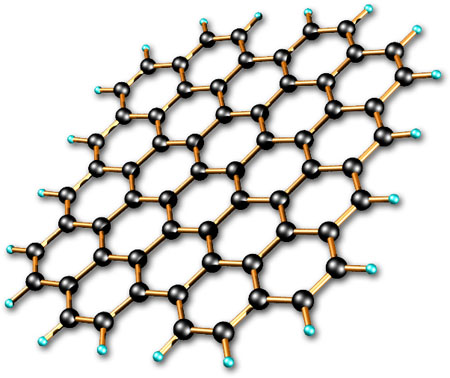You have an incredible tool: the ability to ask a question. But how effectively do you use it?
Many of us have probably had the experience of wanting to ask a question in class but not doing so in fear of looking “slow” or bothersome. But the best way to understand a complex idea is by asking questions, because in asking questions, we get answers. This is an essential quality to scientists and people who are scientifically literate.
Being scientifically literate is not about how much scientific information you can recite. Rather, it is more about your ability to ask questions that will allow you to better understand the natural world. After all, science is about making discoveries, and to do this, one must have a pioneering spirit. One great example of this is last year’s Nobel Prize winners in Physics, Andre Geim and Konstantin Novoselov, who won the award for their work in analyzing graphene, a purely two-dimensional layer of carbon atoms that is stronger than steel. Graphene was extremely expensive to create and so acquiring a sample to study its properties was difficult. But Geim and Novoselov figured out a way to easily and inexpensively acquire some. Their solution: sticky tape. Using ordinary scotch tape, and a slab of graphite (pencil lead, which is made of carbon atoms) they peeled layers of carbon off the graphite with the tape until they had only a single sheet of graphene. They discovered this ingenious method during one of their Friday night experiments, where they test random experimental methods regardless of whether they would successfully work or not. At some point one of them must have asked the question whether such a method was possible. Surely enough, it was and it won them the Nobel Prize.

Graphene
Now you may be wondering why science literacy is important. For one thing, it empowers you to learn about the natural world without requiring you to formally study it. The more questions you ask about the world, the more you will get to understand it, provided someone will be able to answer your questions. It also protects you against others who may try to exploit your scientific ignorance. For example, someone may try to sell you wrist bands that they claim will give you extra strength and energy. If you’re scientifically literate, your instinct will be to ask questions such as “What is the band made of? How do they increase my energy? What are the side-effects?” By the end of your questioning, the seller would either have been exposed to be a charlatan based on his answers or you would have made a more informed decision about buying the product by learning more about it. The investigative skills you develop from being scientifically literate can be applied across many fields and can enrich your thoughtfulness. It will improve your ability to gather information and make informed judgments based on that information.
I became a QC blogger because I believed the student body may have appreciated hearing a voice from the scientific community. Science has enriched my life, and I strongly believe it would enrich yours too, even if you do not study it. My hope is to show you a new way of thinking, to provide you an additional set of lens to look at the world, and to nurture your science literacy. Together, we’ll talk about fascinating science, how it relates to your everyday experiences, how it may relate to other experiences, and more. The universe has much to say, and if we all listen, it will be a great conversation. We may not understand everything, but we will find the answers if we ask good questions.
Watch Neil deGrasse Tyson, popular Astrophysicist, for his engaging and comical discussion of what science literacy is. He is one of the most fun speakers to listen to:


